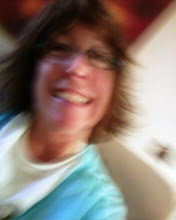
Susan Gerhart, a semi-retired computer scientist living in Prescott, Arizona, will be a keynote speaker at the 2nd IEEE Conference on Software Testing, Verification and Validation (ICST 2009) in Denver, April 1-4, 2009. Her presentation entitled “The Disability/Mobility Challenge: Formulating Criteria for Testing Accessibility and Usability” reflects recent work on topics related to vision disability and assistive technology.
Susan’s Ph.D., from Carnegie-Mellon in 1973, preceded academic stints at the Wang Institute of Graduate Studies and undergraduate programs at Toronto, Duke, and Embry-Riddle Universities, teaching mainly software engineering, Java, discrete mathematics, and data bases.
Her research was primarily in the field of formal methods at USC Information Sciences Institute and the MCC Austin research consortium.
She worked with NASA at Langley and Johnson centers in research and technology transfer and at the National Science Foundation as a Division Director, continuing to serve as a reviewer for NSF and Science Foundation Arizona. Currently, Susan writes the "As Your World Changes" blog on using technology to overcome vision loss.
Her blog articles show how podcasts and digital talking books provide classy replacements for printed media, supported by speech-enabled reading technology. She advocates that mainstream user interfaces should embrace speech as natural channels of expression for applications and websites, while striving to streamline interactions for the betterment of all users.
A demonstration speech-driven podcatcher assists her in maintaining a library of over 1,000 podcasts on topics related to vision disability and assistive technology. Susan has sustained her fascination with software code, starting in the Sputnik era, through logic programming, search analysis, and educational animation.
Susan’s Ph.D., from Carnegie-Mellon in 1973, preceded academic stints at the Wang Institute of Graduate Studies and undergraduate programs at Toronto, Duke, and Embry-Riddle Universities, teaching mainly software engineering, Java, discrete mathematics, and data bases.
Her research was primarily in the field of formal methods at USC Information Sciences Institute and the MCC Austin research consortium.
She worked with NASA at Langley and Johnson centers in research and technology transfer and at the National Science Foundation as a Division Director, continuing to serve as a reviewer for NSF and Science Foundation Arizona. Currently, Susan writes the "As Your World Changes" blog on using technology to overcome vision loss.
Her blog articles show how podcasts and digital talking books provide classy replacements for printed media, supported by speech-enabled reading technology. She advocates that mainstream user interfaces should embrace speech as natural channels of expression for applications and websites, while striving to streamline interactions for the betterment of all users.
A demonstration speech-driven podcatcher assists her in maintaining a library of over 1,000 podcasts on topics related to vision disability and assistive technology. Susan has sustained her fascination with software code, starting in the Sputnik era, through logic programming, search analysis, and educational animation.


